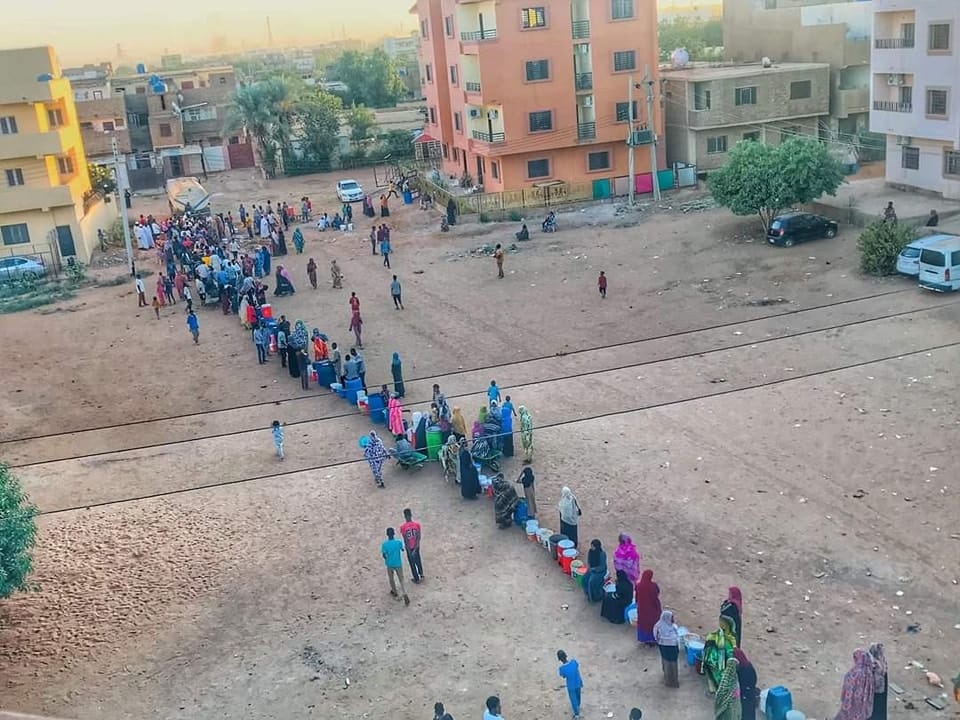Water and fuel scarcity affecting large parts of Sudan

Long queues of people waiting to access water in Omdurman (File photo: RD)
Widespread drinking water scarcity is impacting Sudanese in multiple states as fuel shortages force water plants to shut down, and soaring prices make accessibility challenging for residents—from Khartoum to East Darfur and North Kordofan.
Residents of Ed Daein, the capital of East Darfur, are facing significant challenges in obtaining drinking water, as water stations have been out of service since last November.
Independent journalist Abubakr El Sandali, based in Darfur, told Radio Dabanga that Ed Daein is suffering from a scarcity of drinking water as water stations have ceased operations in the city.
In a call yesterday, El Sandali explained that the water cut-off is “a result of electricity being unavailable for several months”, adding that water prices have surged “significantly beyond the people’s means”. A barrel of water “now costs between SDG2,000 and SDG3,000”.
The city came under RSF control in end November.
‘Serious problem’
In El Obeid, the capital of North Kordofan, electricity and water cuts have persisted for the sixth consecutive day.
An informed source told Radio Dabanga that fuel scarcity in El Obeid is again becoming a “serious problem,” with the price of a gallon of fuel reaching SDG25,000.
“El Obeid residents continue to suffer from the rise in consumer goods prices and poor communication networks”, the source added.
In Omdurman, the Karari Resistance Committees yesterday reported on social media about an escalating “water crisis” in the area. “El Manara drinking station suspended its operation more than ten days ago, forcing residents to rely on water tankers.”
Images shared on social media depict long queues of people waiting to access water.
‘Starving to death’
As covered by Radio Dabanga earlier this week, previous social media reports portray an extremely dire humanitarian situation in central and southern parts of Omdurman, with people ‘starving to death’ in recent weeks.
Water and electricity have been cut off since the beginning of the war in mid-April last year, and communication networks are unavailable. Activists noted that people from Banat, El Arda, and El Morada in Omdurman “sneak into El Abbasiya to fetch water from the only well in the area”.








 and then
and then